The BP Bottom Ten of 2019
This list was compiled from the individual bottom ten lists of several BP writers and contributors. Each film was weighted according to its placement on each individual list. As such, a film that appeared on only two writers’ lists could still wind up on the finalized list if it placed particularly high. Conversely, a film could conceivably be on everybody’s list, but not make the final list, due to low point value.

10. LATE NIGHT
Emma Thompson turns in a great performance in Nisha Ganatra’s Late Night, the story of the only female late night talk show host and her perky new writer (Mindy Kaling, who also wrote the film). As the host, Thompson is prickly, egotistical, and funny. It’s a shame that the film itself isn’t more memorable. It may seem counterintuitive, but comedy is actually a serious business, with tremendous effort put into specific wording and precise timing. But, despite Kaling’s own background in stand-up and scripted comedy, very little of this supposed peek behind the curtain feels authentic. The characters push themselves to be cutting edge, but their jokes are obvious and clumsy. The film tries to convince us that we’re watching industry pros at the top of their game, but rarely delivers, making everything feel all the more phony and, perhaps worse, forgettable. – TS
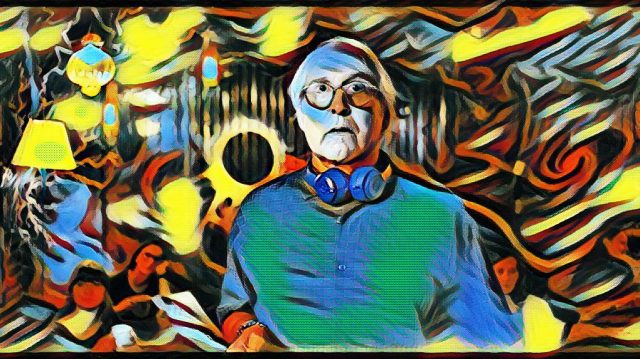
9. THE LAST LAUGH
Boasting a cast that consists of comedy greats like Chevy Chase, Lewis Black, Chris Parnell, Kate Micucci, Richard Kind, and George Wallace, Greg Pritikin’s The Last Laugh somehow manages to be perhaps the least amusing film of the year. The story of washed up comedian Buddy Green (Richard Dreyfuss), getting back in the game with the help of his former manager (Chase), plays like some kind of Baby Boomer power fantasy, insisting on its own relevance despite all evidence to the contrary. As Buddy returns to the comedy clubs of his youth, one might expect his decades away from the business would negatively impact his timing. But, no, despite his stale set-ups and obvious punchlines, Buddy’s got his jaded audience rolling in the aisles. Though Dreyfuss does his best to breathe real, genuine life into Buddy, the cliched script and flat direction provide no assistance. What a waste of talent. – TS
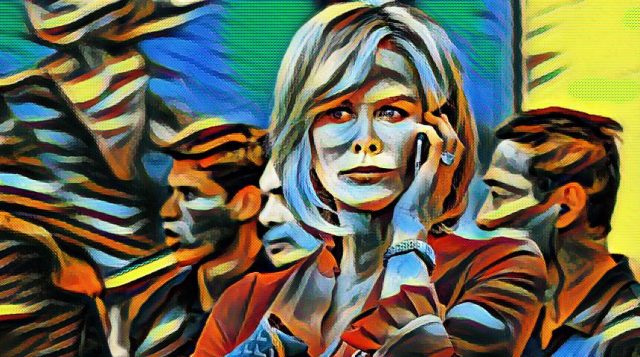
8. BOMBSHELL
Megyn Kelly, most recently famous for getting tossed from NBC about a year into her contract after discovering that the racism she so freely spewed on Fox News isn’t acceptable in an actual society, could be an interesting figure through which to explore the horror the Me Too Movement has brought into the spotlight. The women, including Kelly, who have bravely come forward to call out sexual harassment and rape they’ve experienced in their careers, have still had to contend with the absurd and horrid notion that all victims must themselves be perfect people. Kelly and her colleagues – including Gretchen Carlson, portrayed in the film as a lone feminist warrior on the network, conveniently ignoring the years where she took SpongeBob Squarepants to task for acknowledging both sides of the global warming debate and likening atheists to the Ku Klux Klan – are ideal subjects through which to explore and acknowledge the fact that the degradation of any woman is horrid, even when that woman is a bad person. But Bombshell, which but for Margot Robbie doesn’t have an honest performance amongst its cast of dozens, doesn’t trust its audience to hold this ordinary reality in their hand, so it distorts its protagonists’ pasts as thoroughly as Fox distorts the reality in which we live. Neither practice aids our understanding of the world, just gives two very different audiences the comfort of their inherited convictions. – SN
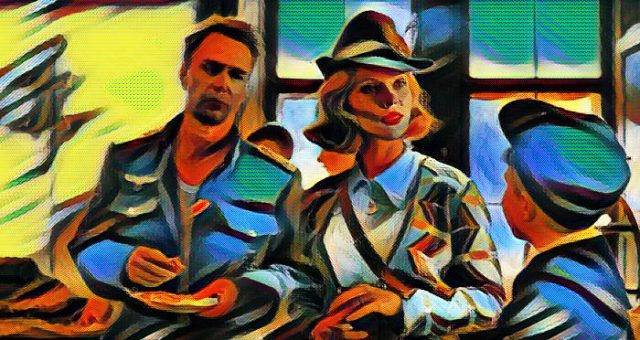
7. JOJO RABBIT
The story of a member of the Hitler Youth prolonging the detention of a Jewish girl in his home because he has a crush on her should, from any practical moral standpoint, be perhaps a more natural fit for the subject of a horror film. Were one to go dark-comedy with it, you’d think the “joke” would wrap back around on young brainwashed Jojo, and less on…well, who is the joke in this “anti-hate satire” on, anyway? Not the Nazis, who are portrayed as at best misguided but generally affable, and at worst particularly strict schoolmasters and bullies. And certainly not on Jojo, whose final war-is-over-if-I-want-it dance is a celebration of his ability to finally tell his captive that the Holocaust is over. The joke isn’t even on us, and the film’s assurance that we’re good people because we don’t think Jewish people have horns (which is really about as deep into Nazi ideology as the film dares venture). Come to think of it, really, the whole film might have gone down better if it had any jokes at all. It is a film bereft of a great many things, moral certitude foremost among them, but to be a comedy so bereft of decent jokes so grotesquely undermines its most fundamental responsibilities. – SN
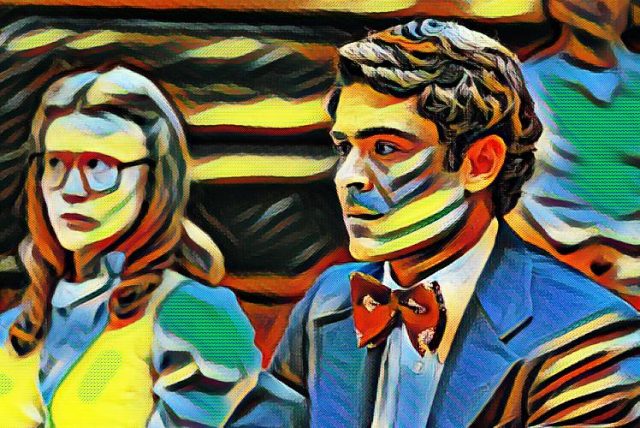
6. EXTREMELY WICKED, SHOCKINGLY EVIL AND VILE
It’s okay to make good movies about bad people. What’s less okay is to make a movie that romanticizes and idealizes bad people. Joe Berlinger’s Ted Bundy biopic Extremely Wicked, Shockingly Evil and Vile (the aggressively clunky title is a quote from the judge during Bundy’s sentencing) not just romanticizes Bundy, but tells the story on his terms. Berlinger’s companion piece, The Ted Bundy Tapes—a four part documentary series—made similar mistakes in bolstering the mystique of a psychopath, but at least had the decency to deliver the story from a place of empathy.
While Extremely Wicked tries telling its story from the perspective of Bundy’s girlfriend, it just can’t help itself but to play right into Bundy’s hand, obsessing over the suave character he created of himself and not interested in what he actually was: a piece of shit who hated women. Perhaps the biggest indictment of Extremely Wicked, Shockingly Evil and Vile is that Ted Bundy would have loved it. – CS

5. IT: CHAPTER 2
Stephen King’s It is a sprawling epic that bounces back and forth between past and present, an operatic horror tale that finds catharsis by expounding on its mythos. It: Chapter Two is a messy, broken slog that can’t get out of its own way, bumbling through plot points that feel more like skits than scenes. The effects heavy spectacle (including a similar gag to 1982’s The Thing, the Rosetta Stone of practical horror effects) highlights just how flat and sterile the CGI scares are, wasting a talented cast on menial plods through well-trod horror fare. And though Bill Hader rightly deserves all the credit he’s received, the messy handling of Richie’s sexuality feels like a cynical attempt to capitalize on the dearth of LGBT representation without actually investing in the character. It: Chapter One was similarly disjointed, it’s component parts were exciting and scary; Chapter Two musters up very few scares in its tumble towards an unsatisfactory conclusion. – CS
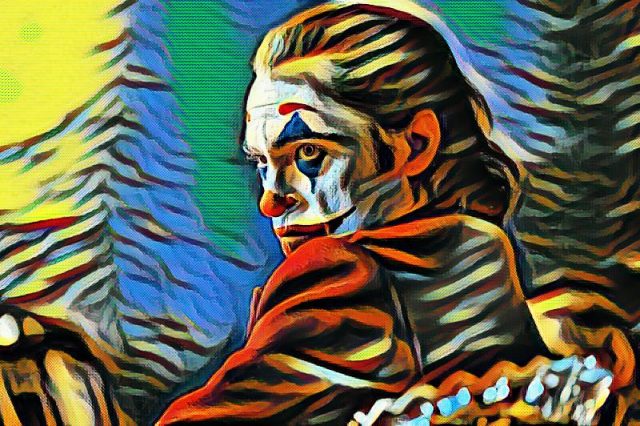
4. JOKER
While surprisingly robust at the box office, Todd Philips’ Joker is a letdown. Covering the well-trod ground of Taxi Driver and Falling Down, the film’s cliches are elevated by a committed and heartfelt performance from Joaquin Phoenix, who proves once again that he is one of the most vital and exciting actors working today. The film itself, however, is directed with the gusto of somebody utterly convinced of his film’s importance, but whose every choice is as broad and obvious as a teenager’s one act play. It purports to explore mental illness, but instead exploits it, treating its main character’s sickness not as a genuine tragedy but as a way to morally subsidize his monstrous actions. – TS

3. THE LION KING
With moviemaking constantly evolving, more filmmakers are pushing their own limits, seeing what they are able to accomplish. Sometimes the result is a breathtaking marriage of art and technology. Some of these experiments, however, turn out some of the most wrong-headed films we’ve ever seen. Jon Favreau’s photorealistic remake of Disney’s The Lion King seeks to put a live action spin on a classic animated film. And, on one level, it succeeds. As we watch the film, it really looks like animals talking and plotting on the screen. And, certainly, the film’s box office receipts can’t be disregarded. The film itself, however, manages to drain whatever vibrance, whatever charm, whatever life the original movie contained, leaving a final product that is technically impressive, but utterly soulless. – TS

2. GLASS
I would never accuse M. Night Shyamalan of lacking ambition, but I would definitely call Glass one of his laziest offerings to date. I am a big fan of 2000’s Unbreakable and had a lot of fun with 2016’s Split. But Glass manages to forget everything that was good and interesting about its predecessors. The script is really where the movie falls short. Shyamalan seems only interested in answering questions that no one was asking about the Unbreakable-verse. The desire to add his trademark twist at the end means the film ends up feeling more like a series of scenes than a cohesive narrative. There are some great actors in the film that are doing their best with this slog of a script. Specifically, James McAvoy, who always manages to elevate anything he is in, is doing some really interesting acting that the script is far from worthy of. But Samuel Jackson and Sarah Paulson are also bringing committed performances. But overall the movie is just a dud that adds little to nothing to this universe of movies and adds nothing more to the conversation about comic books and their role in culture. – SB
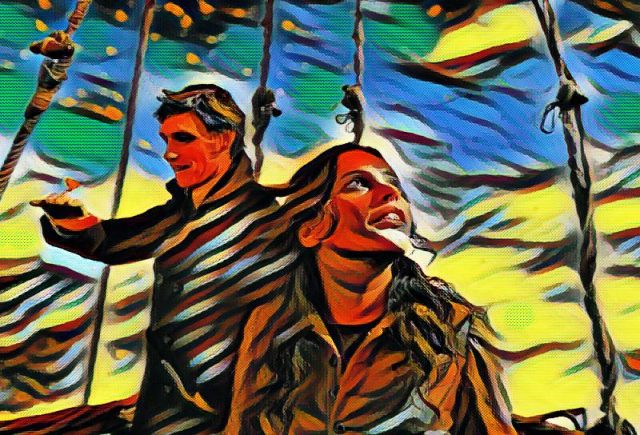
1. THE AERONAUTS
I think the nicest thing I can say about The Aeronauts is that it is fine. The film seems to think that it is saying something big and important about how much scientists sacrifice in the journey to knowledge and about what it takes to truly change the world. In reality the film has very little to say about any of that. The pilot, Amelia Wren’s (Felicity Jones) motivation for taking the flight is explored and beaten to death from the first frames of the film to the end, but James Glaisher’s motivation is almost kept hidden through most of the film. I checked the time code and it was an hour and fifteen minutes in before Amelia finally asks James why he is on the journey. And his answer of, “because science gives order and is beautiful” is far from satisfying given everything they have already gone through. Along those lines, there were some practical issues in the film that I found distracting. A scientist and balloon expert knew they were going up into the coldness of the sky but no one thought to bring a hat or some gloves? I also kept thinking about those YouTube videos of medical professionals assessing how much physical damage characters in movies sustain. I feel like everything that Amelia and James go through would have killed them each at least three times. I know that is nitpicky but it is legitimately distracting throughout the film. The Aeronauts has few moments of excitement and thrills but overall falls flat and has nothing interesting to say. – SB





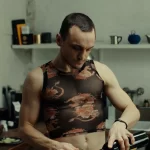
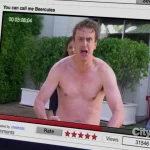
























It’s ironic you refer to Margot Robbie as giving the only “honest” performance since hers was the fictional character. I had also heard that the film simply didn’t address things about the real people, but not much about it “distorting” their history.
The one thing about The Lion King on which I disagree with Tyler is the realism of the animals. I never once believed they were speaking, and they lack weight whenever they’re running, dancing and fighting. Real animals are much better actors than these CGI monstrosities; just watch Babe for evidence of that. I can honestly say I’ve never seen a film as misconceived and fundamentally in disagreement with its medium — ashamed of its medium, even — as The Lion King. Having reviewed straight-to-DVD garbage for a horror website for years, I finally have my go-to pick for worst movie I’ve ever seen.